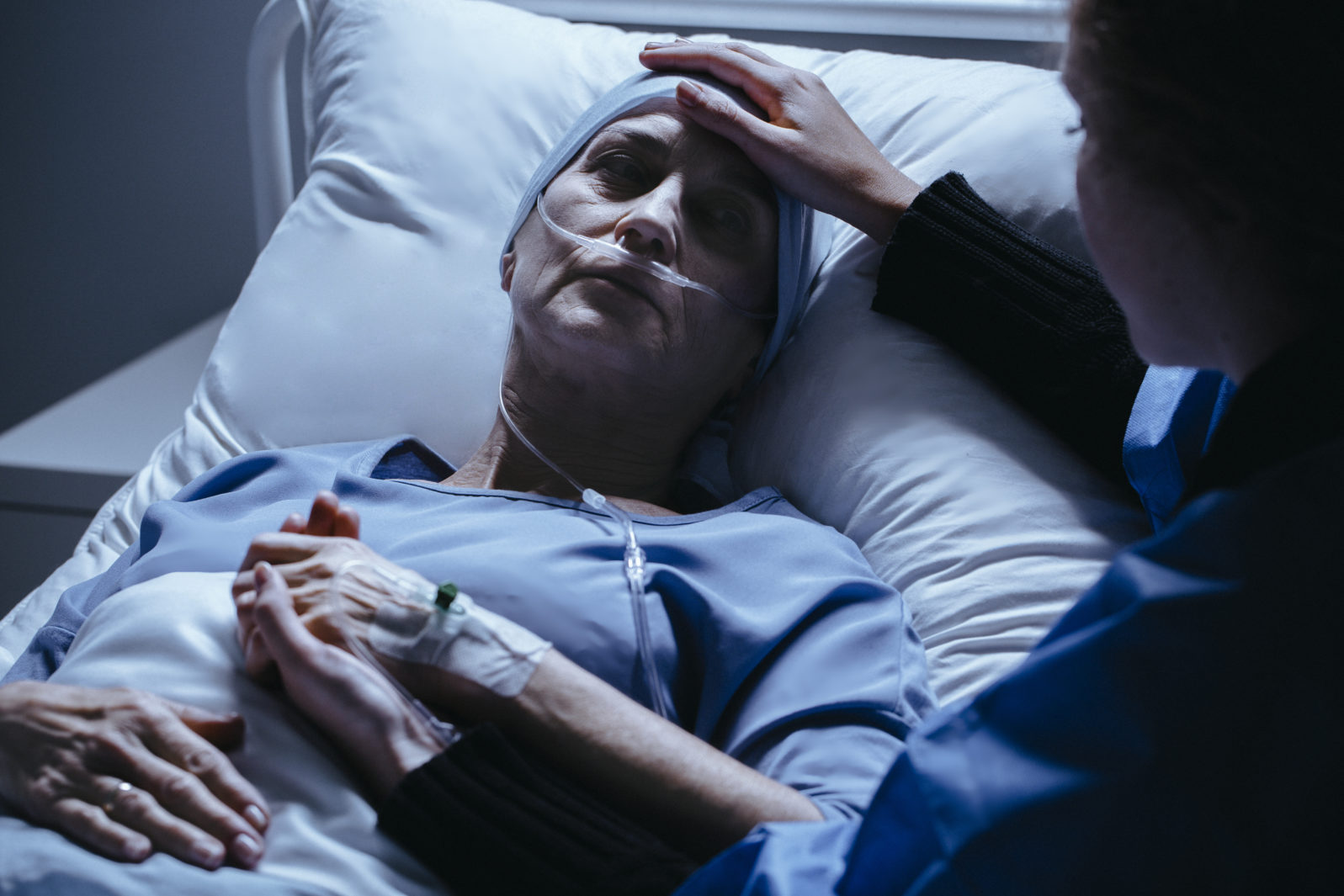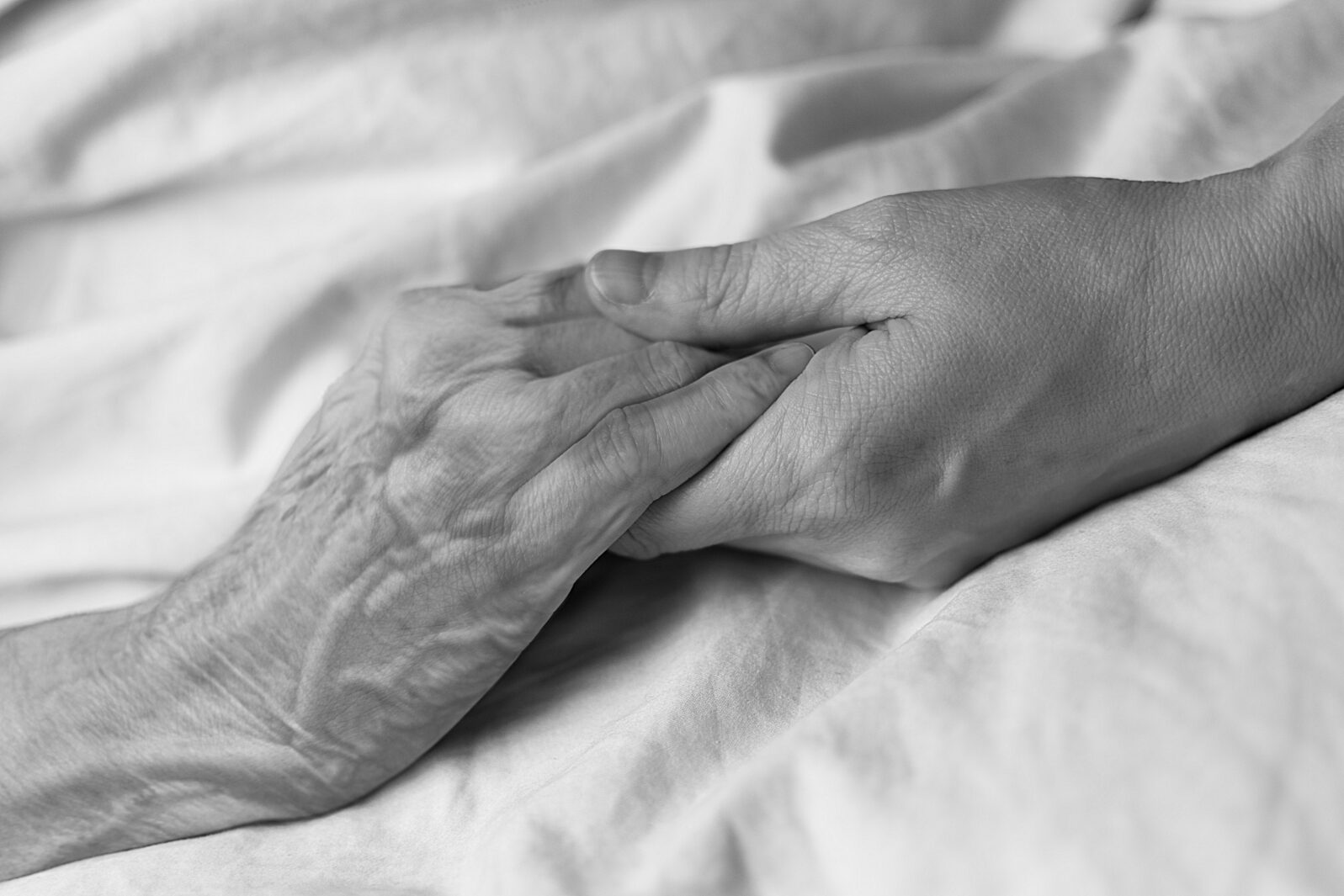Palliative Care Doctor: What Dying Feels Like
Although a dying person tends to spend more and more time asleep or unconscious, there may be a surge of brain activity just before deathYesterday was Ash Wednesday in the Western Catholic tradition. It marks the beginning of Lent, a season of reflection and repentance. A common custom is that, during the service, the priest traces the sign of the cross in ashes on the penitent’s forehead, saying “You are dust and you will return to dust” (Gen 3:19). It’s one of many customs worldwide that offer a sobering reflection on the inevitability of death for all of us — unless, of course, we are transhumanists who genuinely believe that technology can grant us immortality.
What does dying actually feel like?
Most human beings have always believed that the essence of a human being survives the death of the body though the outcome is envisioned in a variety of ways. But, assuming that pain and distress are controlled, what does dying actually feel like? Can science tell us anything about that?

At BBC Science Focus, palliative care doctor Kathryn Mannix offers a few thoughts from long experience, including:
A dying person spends progressively less time awake. What looks like sleep, though, gradually becomes something else: dipping into unconsciousness for increasing periods. On waking, people report having slept peacefully, with no sense of having been unconscious…
As dying progresses the heart beats less strongly, blood pressure falls, skin cools down and nails become dusky. Internal organs function less as blood pressure drops. There may be periods of restlessness or moments of confusion, or just gradually deepening unconsciousness…
Breathing moves from deep to shallow and from fast to slow in repeating cycles; eventually breathing slows and becomes very shallow; there are pauses; and, finally, breathing ceases. A few minutes later, the heart will stop beating as it runs out of oxygen.
Kathryn Mannix, “What does dying feel like? A doctor explains what we know” BBC Science Focus, February 10, 2024
Surge of brain activity just before death
We are also learning that, contrary to what we might have expected, the brain does not necessarily just die down quietly. Researchers have recorded a surge of activity just before death:
To that end, the brain activity of four people who passed away in hospitals while being monitored by an EEG (electrogram) device was studied.
“The data generated, even though it’s only four patients, is massive, so we were able to only report a fraction of the features that it’s actually showing on the data,” Prof. Borjigin said.
At the time of death, brain activity was detected in the TPJ region of the brain — named because it’s the junction between the temporal, parietal and occipital lobes in the back of the brain.
Dan Gray, “Study finds evidence of increased brain activity in people right before they die,” Medical News Today, May 5, 2023. The paper is open access.
There may be a correlation between the surge of activity and near-death experiences, though that wouldn’t account for the NDEs of people who showed no neurological activity.
In any event, cells deprived of oxygen are doomed. But that does not mean that all of the body’s cells cease to function immediately when a person dies:
The brain and nerve cells require a constant supply of oxygen and will die within a few minutes, once you stop breathing. The next to go will be the heart, followed by the liver, then the kidneys and pancreas, which can last for about an hour. Skin, tendons, heart valves and corneas will still be alive after a day. White blood cells, which are more independent, can keep going for almost three days.
Luis Villazon, “When we die, does our whole body die at the same time? ”BBC Science Focus, nd.
So when a medic declares a person dead, that means that the death process is past the point of no return, not that every cell in the body is dead.
Terminal lucidity — getting in the last word
There are many stories through the ages of people near death suddenly waking up and saying something lucid. Researchers who study the phenomenon call it terminal lucidity. At Psychology Today in 2018, nurse educator Marilyn Mendoza noted regarding research to date::
So far, the response rate to the questionnaire he distributed has been limited. While the results are in no way definitive, out of the 227 dementia patients tracked, approximately 10 percent exhibited terminal lucidity. From his literature review, Nahm has reported that approximately 84 percent of people who experience terminal lucidity will die within a week, with 42 percent dying the same day.
Marilyn Mendoza, “Why Some People Rally for One Last Goodbye Before Death,” Psychology Today, October 10, 2018
As to why it happens, she offers,
There is as yet no logical scientific answer to this medical mystery. There is just not enough information to postulate a definitive mechanism for terminal lucidity. The fact that it occurs in people with different diseases suggests that there may be different processes occurring. Some speculate that this could be a spiritual experience or divine gift. It certainly is a gift for family members attending the death to have one last opportunity to be with their loved one and to say their last goodbyes. Both family members and caregivers who have been witness to this state that they feel changed by the experience.
Mendoza, “One Last Goodbye”
One interesting trend is this: Fifty years ago, slick media commentators expected to report that research into death and dying would explod all those myths about a soul or the hereafter or the human mind. But the opposite has happened. Topics like terminal lucidity and near-death experiences are conventionally researched now. And it’s just as clear now as it was fifty years ago that life is a journey and death is not, itself, the destination; rather, it’s a gateway to one.
You may also wish to read: Do people suddenly gain clarity about life just before dying?
